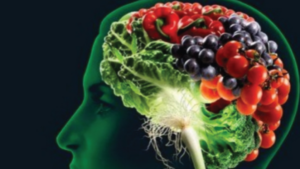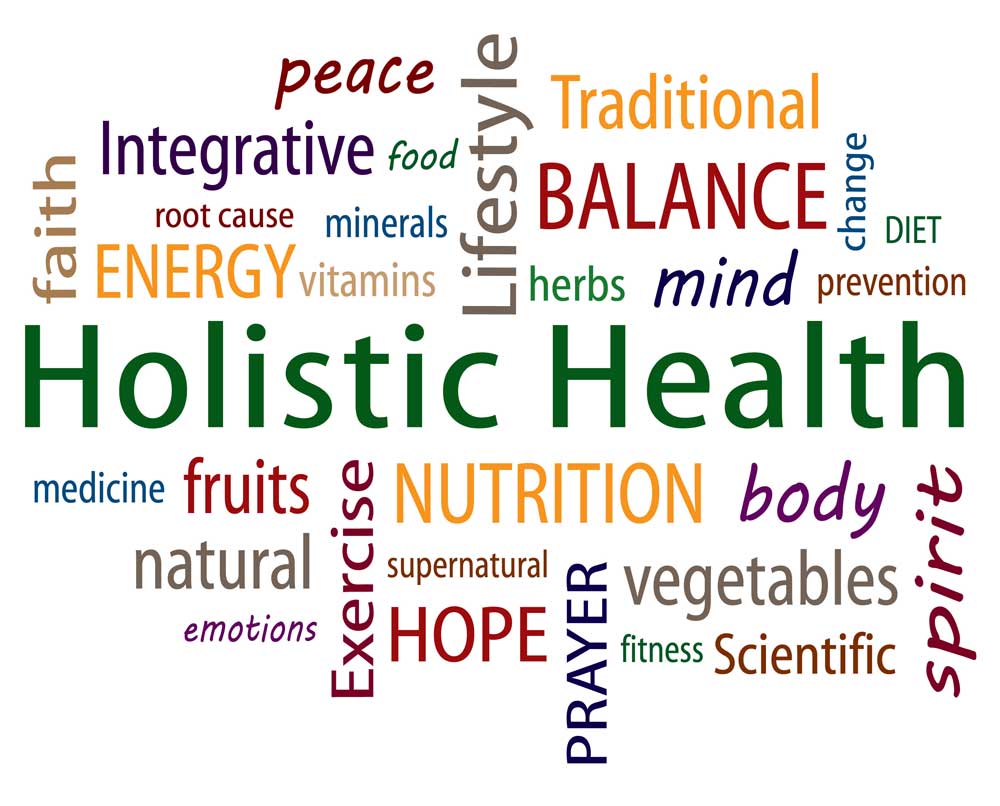
“Human Nutrition has always been a fad “
“Human Nutrition has always been a fad. I can tell you otherwise: Eat well! A Holistic Healthy whole food diet is my only recommendation as the gateway to healing, rejuvenation, and optimum health! The culprit to the western SAD diet is acidosis and its destructive force on our biological functions of body mind and spirit.

Dr. Sixto
Food, Mood and Groove and the art of Holistic Nutrition
Food is a substance consisting essentially of protein, carbohydrate, fat, and other nutrients used in the body to sustain growth and vital processes to furnish energy. The source from which we get these nutrients can have an influence on a person’s behavior and well-being, from feeling irritable or anxious, having mood swings, or on the flip-side, food can provide the optimum energy, clarity and more balanced and a more alert and active state of being, not to mention a better self-image and self-esteem. As we start to practice the discipline of a Holistic Wellness lifestyle we start to feel “goodness” as never before, calmer, clearer, and more confident in the life that we are living.
In the Holistic Health field, nutrition is part of the set of disciplines needed to maintain optimal wellness. It has been noted in our field that much depends on nutrition for our bodies to function appropriately, and I do not mean just physically. New research is starting to emerge (and about time) on the link between our moods and how they are affected by the fuel we intake (place a lower grade gas in a car and you get knocks and eventually a congested underperforming engine). How is it that food intake would not affect the passageways and highways where nutrition is driven to the physiological systems of our body, especially our brains? Nutrition is a lifelong human relationship, as we age our food requirements change, and our metabolism changes. We need to understand these factors to maintain an optimum physical state and a mind that produces thoughts that match a healthy functioning organism.
Maintaining the organism in optimal condition requires a new discipline in the lives we live today. We don’t pay much attention to what we eat and certainly, we are lacking in the way we relate to the things we eat. Studies show that 76 percent of adults don’t meet the recommendations for daily fruit intake. Even more—87 percent—of adults don’t meet daily vegetable requirements. When we eat appropriately we cut out the perceived need for supplements to restore the necessary nutrient levels in our body as the health benefits and risks of dietary supplement use have become a bit controversial as of late. In an article published in the Annals of Internal Medicine1, it was concluded that an adequate intake of many nutrients has a beneficial effect on health but this was only seen when the nutrients were consumed in food, not supplements. Some nutrients also help each other out. Vitamin D, for instance, boosts the body’s absorption of calcium. By eating an orange, which contains calcium and vitamin D, you get to absorb more calcium. If you took a single supplement of calcium, it wouldn’t get that help. Whole foods are always more nutritious than their refined counterparts and this includes supplements.
In many instances, the vitamins and minerals found in food sources are easier to absorb than those in supplement form. With the added benefit of the other nutrients found in food, eating healthily gives far greater benefits than opting for supplements and eating poorly. A diet low in fat and proteins and eating more fruits and vegetables is good for your organism. The average American diet (SAD) is already high in ultra-processed, low-nutrient food. This is why we eat more than ever but are less healthy and have more deficiencies and increasing rates of chronic disease. By focusing on eating a healthy diet of whole foods, it’s not difficult to get all of your nutrients through your diet.
“It is important to note how you interact with life daily as that interaction with your biological self is complex and interconnected. Let’s look at it this way. What you consume can detract from your physical activity and the results as we know, slower metabolism and such, can have long-term negative effects on the various physiological systems, to say the least.”
Take the most perfect nutrient in your system: blood. Blood naturally maintains a slightly alkaline nature. The wastes of cells that go into your blood are acidic in nature. If this condition is not neutralized and eliminated it reduces the alkalinity of the blood. The organism holds an urgent need for the body to ensure an acid-base balance, since the body, deprived of its acid-base (pH) homeostasis in blood pH balance can result in death within minutes.
What we lack in our food intake, fruits, and vegetables, are the anti-acidic variables in those nutrients that help balance the acid-base nature of the blood. If there is a deficiency of base-producing minerals and organic salts the body is forced to draw upon its own reserves contained in the blood and tissues to neutralize and detoxify the blood of the toxins. If arterial blood stays above a pH balance of 7.4, this acidic balance in the blood can lead to chronic acidosis and decomposition of body cells, tissues, and muscle. In order to maintain acid-base pH balance in arterial blood, the body maintains “diet-derived” alkaline reserves in the blood, other fluids, and tissues and stores extra backup alkaline reserves available for transfer into the blood when alkaline compounds in the blood, other fluids, and tissues run short. For example, a wonderful alkaline neutralizing source is potassium salts. Where is this source plentifully stored in the body? The bones. This may be why bone structures after years on an acidic SAD diet, may weaken with age since the SAD diet is naturally deprived of alkaline-producing reserves.
Mindful eating is another important factor in diet and health and may assure that your food intake is well-regulated. When eating mindfully, your brain, it has been shown, has a better ability to turn off the hunger switch in your brain by releasing tanycytes located in the hypothalamus region of the brain.
When you slow and chew your food, the brain has ample time to receive signals as to what types of food are being readied for digestion and has the time to accurately provide the correct bile mix to the stomach, therefore, reducing digestive issues. Being mindful when eating also puts into play the fact that your system is paying attention to what you are ingesting. This idea of a slower, more careful, or thoughtful way of eating may help us to enjoy our food more, choose more healthful foods and make us less likely to overeat. Flip the hunger switch before it’s too late.
Mindful eating helps us to pay attention to our actions and perhaps stop “the snack” when we’re not hungry or eat what we’re not craving. Mindful eating is about awareness and intention, two essential aspects of healthy thought processes.
We get caught up in life. A life that in many instances does not ask us how we are doing, how we are feeling around a situation, nor what it is we need to do differently to feel a bit, just a bit better about our being. We rush, we rush. When it comes to food we fail to experience the sensuality of food or even our relationship with it potentially falling into shame and guilt. At times we may even eat for the sake of eating. I know, I’ve been down that road only to cause a bumpy ride.
The CDC recommends adults emphasize a diet mixed with fruits, vegetables, whole grains, and fat-free or low-fat milk products. It’s also recommended that adults steer away from foods high in saturated fats, trans fats, cholesterol, sodium, and added sugars.
Keep in mind that when stressed or depressed it is normal to desire high calories, and unhealthy treats. This can be the organism’s natural reaction to fight or flight when the going gets tough, so it’s super important to be aware when your day is less than ideal. Set an intention to regulate and be aware of what is going down the tube and how often. It has been shown that foods full of fat and sugar can increase the likelihood of depression and anxiety, and that could equal the intake of more high-caloric and unhealthy foods to fight all the bad moods. This can set up the perfect storm of habitual unhealthy eating which can get to the point where you only feel good when junk goes in. Your brain knows what makes you happy or sad and being the perfectionist that the brain is, it will set the path of your intentions and in the case of unhealthy foods, a path of dietetic disaster.
What would be the long-term mental health effects of eating well? When you eat well, preferably a balance of 80% of your food intake be alkaline forming and 20% be acid-forming such as a healthy whole food diet full of fruits, vegetables, whole grains, and lean proteins, can help keep maintain a healthy mental attitude, stabilizing mood and keeping you out of the danger zone where it feels like only a slice of cake will save the day.
Eat well. A Holistic Healthy whole food diet is my only recommendation!
For further information on how you or a loved one could benefit from a Holistic Wellness, Whole Health path, please do not hesitate to contact me at sixto@drsixto.me
To your Whole Health, naturally!
Sixto J. Sicilia, PhD
1 Chen, MS, MPH, F., Du, MS, MPH, M., & Blumberg, Ph.D., J. B. (2019, May 7). Association Among Dietary Supplement Use, Nutrient Intake, and Mortality Among U.S. Adults. Annals of Internal Medicine. Retrieved August 18, 2022, from https://www.acpjournals.org/doi/10.7326/M18-2478
